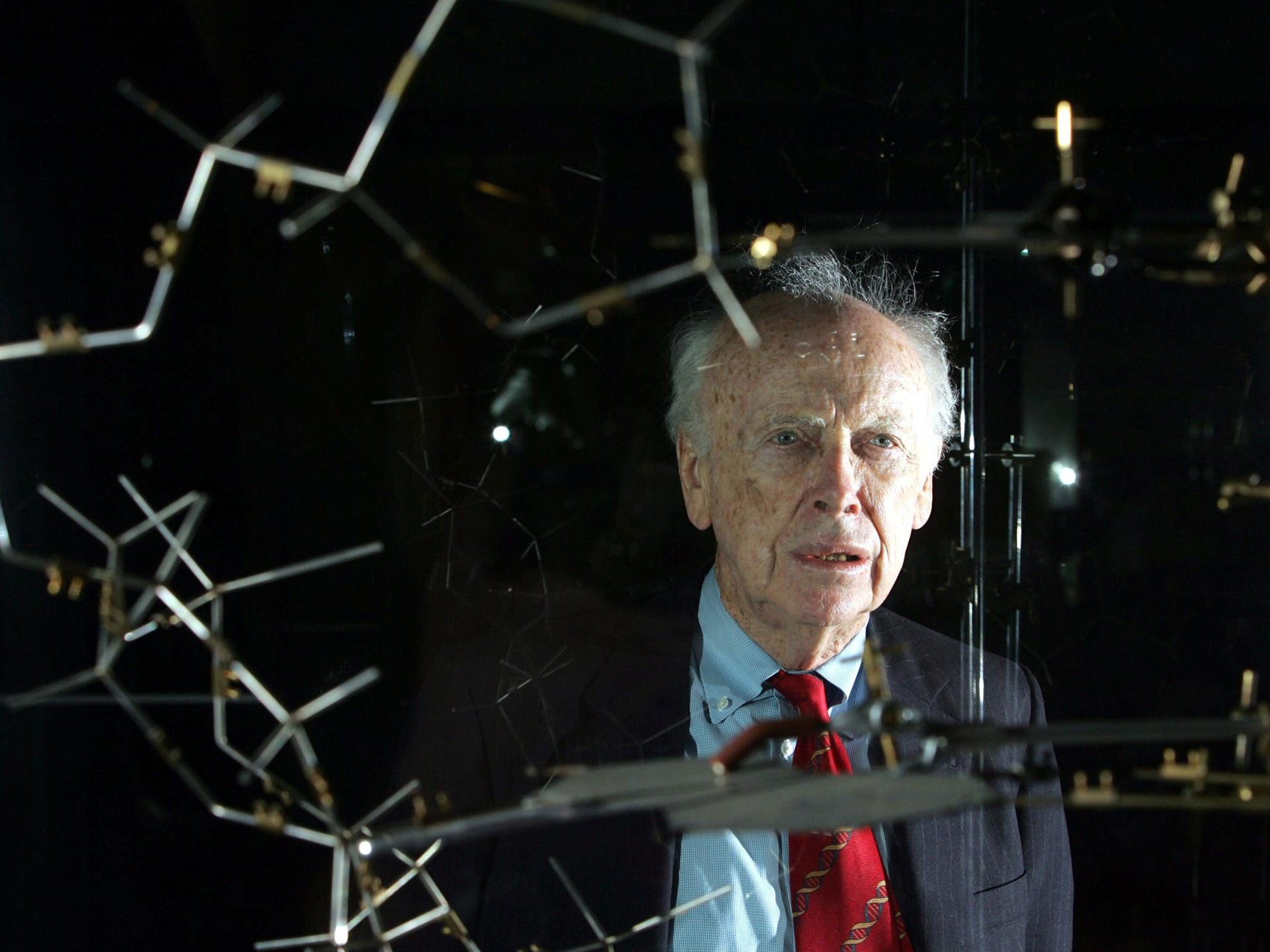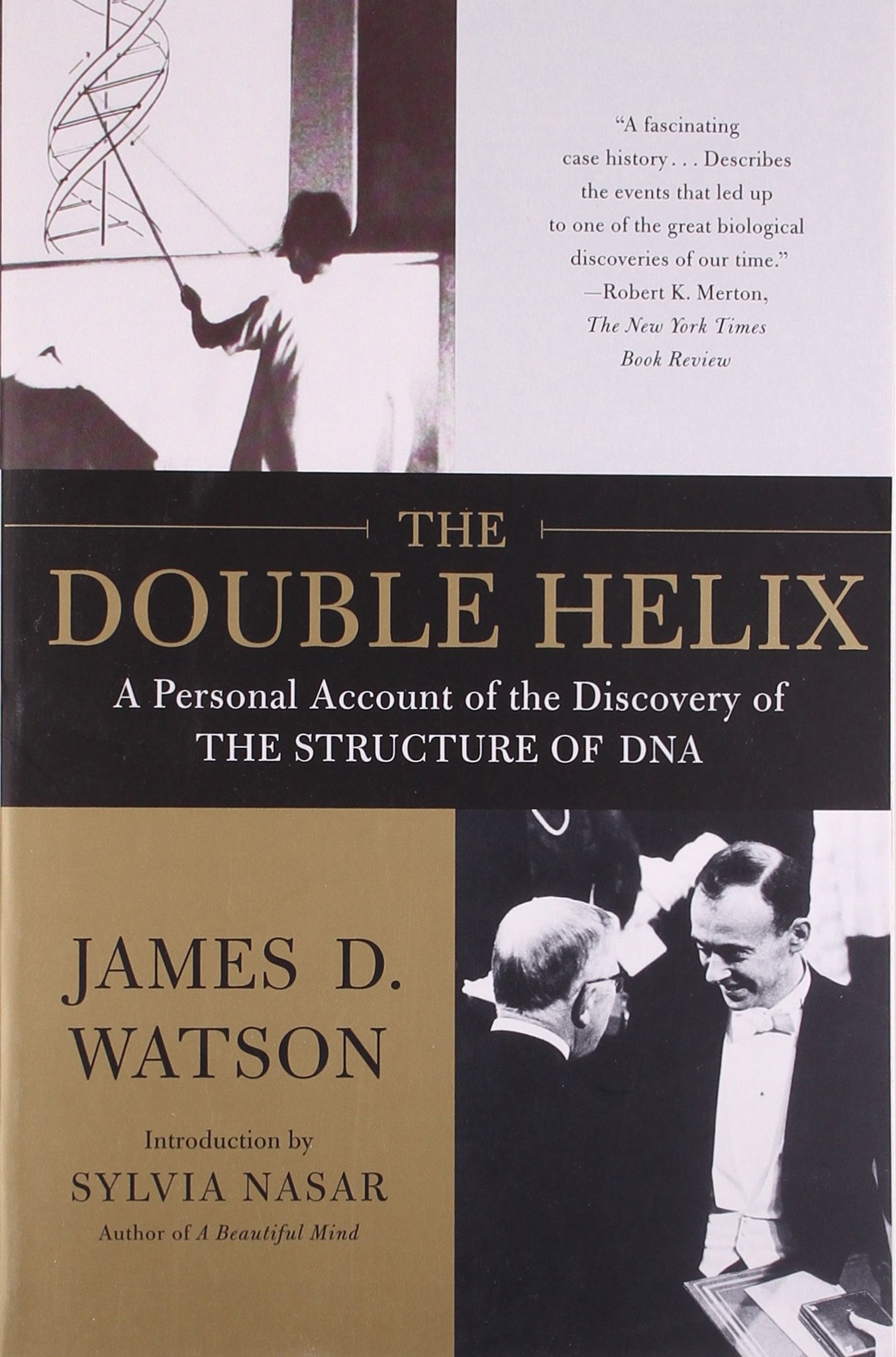James Watson: The most controversial statements made by the father of DNA
The Nobel Prize laureate is widely recognised as a great scientist, but his reputation has been tarnished by remarks he has made about race, women and gay people
Your support helps us to tell the story
From reproductive rights to climate change to Big Tech, The Independent is on the ground when the story is developing. Whether it's investigating the financials of Elon Musk's pro-Trump PAC or producing our latest documentary, 'The A Word', which shines a light on the American women fighting for reproductive rights, we know how important it is to parse out the facts from the messaging.
At such a critical moment in US history, we need reporters on the ground. Your donation allows us to keep sending journalists to speak to both sides of the story.
The Independent is trusted by Americans across the entire political spectrum. And unlike many other quality news outlets, we choose not to lock Americans out of our reporting and analysis with paywalls. We believe quality journalism should be available to everyone, paid for by those who can afford it.
Your support makes all the difference.James Watson is undoubtedly one of the world’s greatest living scientists. Awarded a Nobel Prize for his work unravelling the double-helix structure of DNA while still a young man, the geneticist went on to be a leading light in the molecular biology revolution that followed. He has led major research institutions and spearheaded the Human Genome Project, which successfully mapped the spread of human DNA for the first time.
Sadly, in recent years his achievements have been overshadowed by a series of controversial remarks made in public and to the press that have been viewed as racist, sexist and homophobic.
The conversation about Dr Watson has been rekindled by a new warts-and-all documentary on PBS examining his incredible life, while also challenging him on some of his most controversial statements.
Chicago-native Dr Watson has always been a divisive figure. While the pair later became friends, the renowned biologist E.O. Wilson once described him as "the most unpleasant human being I had ever met".
There is no doubt the scientist delights in provocation and spectacle. In 2014 he became the first Nobel laureate to auction off his medal, citing hard times after being shunned by the scientific community. He suggested he would use the money to buy a David Hockney painting.
But what has particularly grated on critics is that not only are his statements offensive, they come from a man who despite being devoted to science appears happy to make profoundly unscientific pronouncements.
Race and intelligence
The greatest upset came when Dr Watson told an interviewer from the Sunday Times in 2007 he was “inherently gloomy about the prospect of Africa” because “all our social policies are based on the fact that their intelligence is the same as ours – where all the testing says not really”.
He added that while he would like everyone to be equal, “people who have to deal with black employees find this is not true". These remarks, which have been universally derided as based on incredibly shaky scientific foundations, led to a forced retirement for Dr Watson from his chancellor role at Cold Spring Harbour Laboratory.
In the new documentary on PBS celebrating his life, an interviewer asks the 90-year-old scientist if, given the backlash he suffered after his comments about race and intelligence, his views had changed. His answer leaves no room for uncertainty: “No, not at all,” he says. “There’s a difference on the average between blacks and whites on IQ tests. I would say the difference is genetic.”

Skin colour and libido
More controversy came when Dr Watson suggested a link between skin colour and libido in 2000, suggesting the skin pigment melanin boosts sex drive.
"That's why you have Latin lovers," he said. "You've never heard of an English lover. Only an English patient."
Anti-Semitism
In another interview in 2007, this time with the magazine Esquire, Dr Watson said that “some anti-Semitism is justified”.
“Just like some anti-Irish feeling is justified. If you can’t be criticised, that’s very dangerous. You lose the concept of a free society,” he said.
In the same interview he praised Ashkenazi Jews, suggesting they are more intelligent than other ethnic groups.
Women
Over the years Dr Watson has often made comments that have been branded as sexist. He has said that female scientists won’t be taken seriously if they had children, implied women are not good at maths and said that while having more women around in science makes things “more fun for the men”, they are “probably less effective”.
He has also remarked in relation to future genetic innovations that “people say it would be terrible if we made all girls pretty. I think it would be great.”
Rosalind Franklin
Dr Watson’s incredibly popular account of the discovery that made him famous, The Double Helix, brought him many accolades. However, it has also drawn criticism for its descriptions of Rosalind Franklin, whose X-ray diffraction images of DNA are now regarded as a crucial contribution to the double helix discovery.
In the book he describes Franklin’s appearance unfavourably, explaining that she “did not emphasise her feminine qualities”. He has since questioned her intelligence and speculated that she may have had Asperger’s syndrome.

Fat people
While giving a lecture at the University of California, Berkeley, in 2000, Dr Watson suggested to the audience that thinner people were more ambitious.
"Whenever you interview fat people, you feel bad, because you know you're not going to hire them," he said.
Selecting based on a ‘gay gene’
The geneticist has been ardent in his view that, if scientific expertise allows it, people should be allowed to choose traits in their unborn children. Working for Cold Spring Harbor Laboratory, an institution historically associated with the eugenics movement, this has understandably ruffled a few feathers.
Most controversial was an interview he gave to the Sunday Telegraph in which he said: “If you could find the gene which determines sexuality and a woman decides she doesn't want a homosexual child, well, let her”.

Join our commenting forum
Join thought-provoking conversations, follow other Independent readers and see their replies
Comments